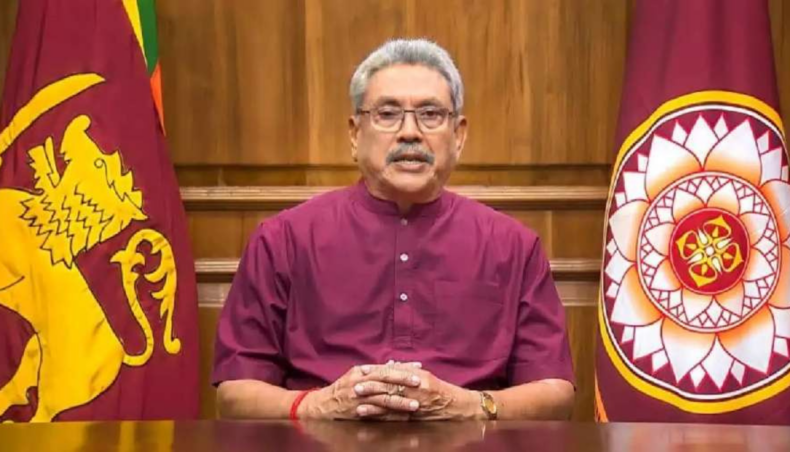An embattled president flees Sri Lanka amid protests over the country’s economic situation and settles in Singapore.
President Gotabaya Rajapaksa sent a letter of resignation after fleeing to Singapore, and the speaker of the Sri Lankan parliament accepted it.
Mahinda Yapa Abeywardena, the speaker, declared on Friday, “From this moment, we shall seek to constitutionally appoint a new president.”
He added that the Parliament would convene on Saturday to start the selection process for the new president who would complete Rajapaksa’s remaining term, which ends in 2024. According to Abeywardana, the procedure should be finished in seven days.
The news that a letter had been submitted on Thursday had sparked celebration in Colombo, the nation’s commercial center, as demonstrators gathered outside the presidential secretariat defying a citywide curfew.
At the Gota Go Gama protest site, which was mockingly named after Rajapaksa’s first name, crowds lit firecrackers, screamed slogans, and danced wildly.
The entire nation will celebrate today, according to activist Damitha Abeyrathne. It’s an important triumph.
She continued, “We never believed we would be able to free this country from them,” alluding to the Rajapaksa family, who for 20 years controlled the political landscape of the nation.
Sri Lanka: ‘Economical Collapse’
Rajapaksa arrived in Singapore on Thursday after escaping widespread protests over the collapse of his nation’s economy. According to accounts, he continued his journey aboard a Saudia airline trip to Singapore.
Ioma, Rajapaksa, and their two bodyguards were present. Rajapaksa was greeted by a number of security officers and was seen leaving the airport VIP area in a convoy of black vehicles, according to a passenger on the flight who declined to be identified but spoke to Reuters news agency.
The president traveled in business class, according to airline employees on the aircraft, who described him as “calm” and “pleasant.” They also said that he wore all black.
“Just a private visit”
Rajapaksa was indeed permitted entry into Singapore, according to the city-foreign state’s ministry, but they stressed it was just for a “private visit.”
“Neither has he requested asylum nor has any been granted for him. According to a statement, Singapore “usually does not grant pleas for refuge.”
In one of the airport’s arrival zones, a few Sri Lanka were waiting to express their rage at Rajapaksa and the economic turmoil sweeping their country.
An unnamed Sri Lanka design engineer who works in Singapore remarked, “I want to reprimand him with all the terms that I know.
He told the AFP news agency, “He’s to blame for everything that transpired in our country.” There is a sizable Sri Lankan diaspora in the city-state.
However, officials quickly issued a warning against protests: it is forbidden for even one individual to hold a rally in strictly regulated Singapore without prior official approval.
In a statement following Rajapaksa’s arrival, the police warned that “action will be taken against anyone participating in a public assembly that is illegal” and advised people to “abide by our local laws.”
‘Generally calm’
More protests followed Rajapaksa’s decision on Wednesday to name his ally, Prime Minister Ranil Wickremesinghe, as interim president. Protesters stormed parliament and the premier’s office, demanding that he resign as well.
Malik Perera, a 29-year-old rickshaw driver who participated in the parliament protests, stated on Thursday, “We want Ranil to go home.” “They have sold off the nation. We want someone trustworthy to lead. In the interim, we won’t stop.
The economic crisis has been the subject of months-long protests, which culminated this weekend when hundreds of thousands of people occupied government facilities in Colombo and demanded an end to corruption, runaway inflation, and shortages of essential supplies.
Ordinary Sri Lankans toured the corridors of the president’s mansion early on Thursday, admiring the building’s enormous art collection, fine cars, and swimming pool.
However, the regular protest locations were peaceful. On Thursday night, protest organizers returned the presidential and prime ministerial homes to the government.
In an effort to stop more disturbance, the authorities imposed a curfew in Colombo from Thursday at midday (06:30 GMT) till Friday early in the morning. Armed vehicles with soldiers on top were seen patrolling the city’s streets in the local media.
The military claimed that soldiers had the right to use force in order to defend citizens and public property.













